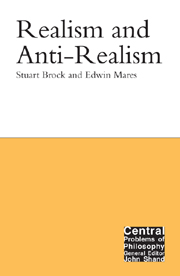5 - Kantianism
from Part I
Summary
Introduction
Kantianism is another form of global anti-realism, although Kantians tend to call themselves realists. Kantians accept all of the entities of the common-sense and scientific worldviews. They accept the existence of tables, chairs, cats, dogs, matter, forces such as gravity and so on. But they claim that all of these entities are in a sense mind-dependent and it is because of this that we classify Kantians as anti-realists.
The key distinction for Kantians is between the world as it appears to us and the world as it is in itself. The world as it is in itself is often called the “noumenal world” and things as they are apart from the way in which we perceive and understand them are called “noumena”. Kantians claim that the nature of noumena cannot be known; only the world as it appears to us – the so-called “phenomenal world” – can be discovered.
In this chapter we shall look briefly at Kantianism as it was presented by Kant himself and then provide a closer examination of the work of a modern Kantian, Hilary Putnam.
Kant
Immanuel Kant holds that we must be born with rather complex innate mental structures that allow us to interpret the world. Moreover, these structures do not mirror the nature of the world as it really is.
As we have said, Kant distinguished between the world as it is in itself – the “noumenal” world – and the world as we perceive it – the “phenomenal” world.
- Type
- Chapter
- Information
- Realism and Anti-Realism , pp. 60 - 77Publisher: Acumen PublishingPrint publication year: 2007

